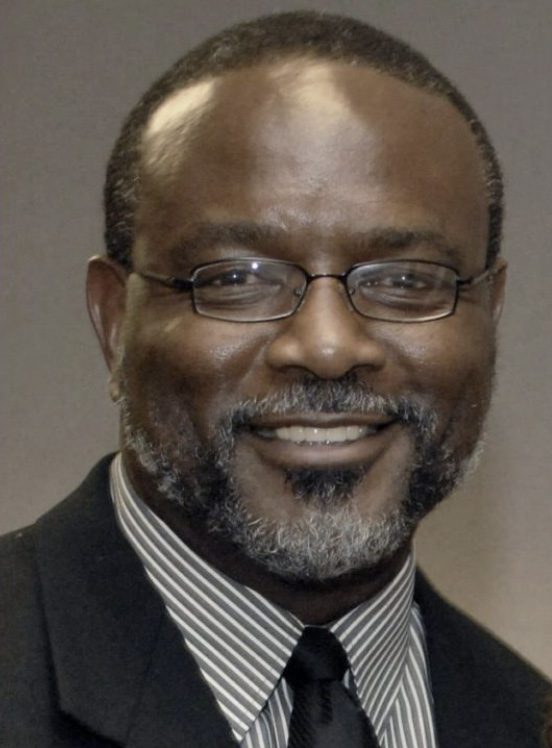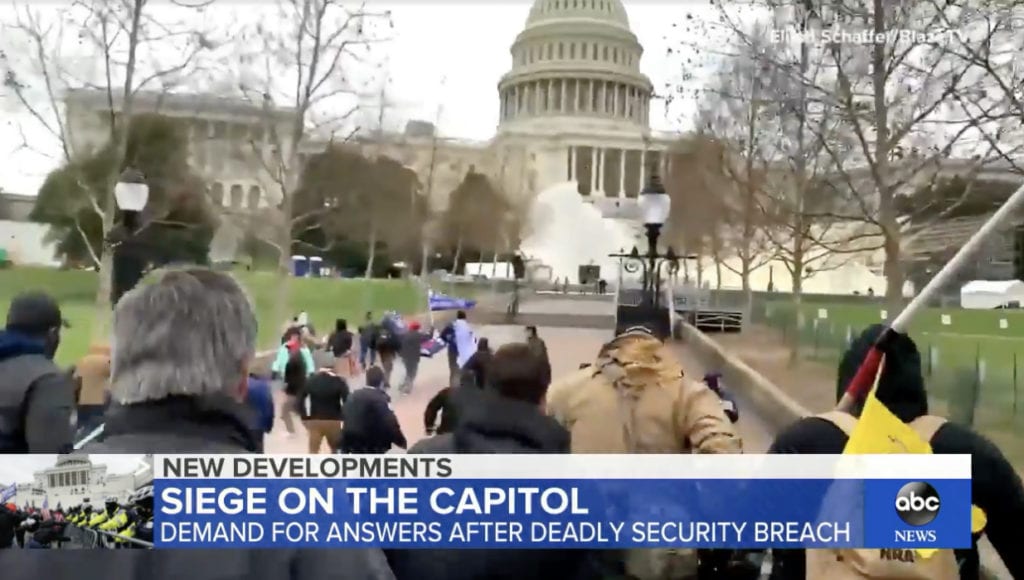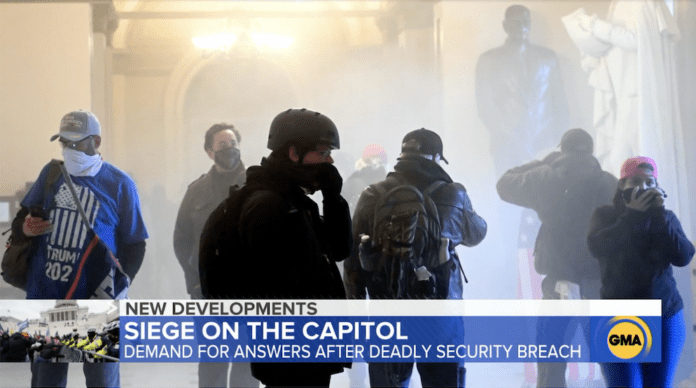
The Jan. 6 assault on the nation’s Capitol was a colossal failure of leadership and responsibility on numerous fronts, and has left our country as divided as ever.
It was an event for the ages.
Literally, at the behest of America’s sitting President, a mob of United States citizens attacked the Congress as lawmakers tried to certify the results of the Nov. 3 presidential elections. Several people were injured, and sadly, some lost their lives, including a Capitol police officer, who was fatally bludgeoned by the mob.
The fallout has been catastrophic. Our standing on the world stage as a “shining city on a hill” of Democracy has been severely diminished. World leaders mock us. There are deep divisions among our citizenry. Our government is in shambles and the American people’s faith in its democracy has been severely shaken.
As an educator, I could not help but notice the galaxy of teaching and learning material unfolding before my eyes.
I wondered if educators all over America were thinking and seeing the same things.
I know it sounds a bit weird to be excited about all the calamity that is engulfing us, but the learning material being generated is excellent. We are watching academic textbooks come alive in real time and we are actually taking part in the experience.
Let’s start with the Constitution, for example.
Constitutional Law and Social Studies teachers all over America now have new and fresh material they can use to challenge their students when it comes to understanding the U.S. Constitution.
I can see vigorous debates occurring this semester around the topic of free speech and other First Amendment rights.

The rioters, who stormed the capital building, claimed they were merely exercising their First Amendment rights of free speech and protest.
Were they? How does the Constitution describe such a right?
Does the First Amendment address decisions made by Twitter, Facebook and other social media platforms to suspend permanently or indefinitely President Trump’s personal accounts.
Did the President and others in government, who put their hands on the Bible and swore an oath to protect and defend the Constitution, do what they promised?
“I do solemnly swear that I will support and defend the Constitution of the United States against all enemies, foreign and domestic; that I will bear true faith and allegiance to the same; that I take this obligation freely, without any mental reservation or purpose of evasion; and that I will well and faithfully discharge the duties of the office on which I am about to enter-so help me God.” — Presidential Oath of Office.
Should the President be impeached (again)?
I would love to watch a group of high school students conduct mock impeachment trials for both the House of Representatives and the Senate.
Criminal law professors saw on television illegal and criminal activity being committed right before their eyes. People crushed the doors of the Capitol and vandalized our nation’s most sacred institutions.
Law enforcement personnel and members of the press were assaulted. A protester was fatally shot by a law enforcement officer while she and others tried to force their way into a Capitol chamber. The event was shown on national television.
Professors, help your students identify the crimes and discuss how those who perpetrated those crimes can be charged and prosecuted.
Include also in those discussions the response of law enforcement during the assault.
Was their response adequate? Should they have been better prepared? Was law enforcement complicit?
These are all rich and debatable questions, and should contribute to energetic and robust learning opportunities.
American History teachers can lead discussions about where and how last week’s events fit into our nation’s overall history.
How will history judge President Trump and his administration? What lasting damage have they done to American democracy? How can our reputation as a thriving democracy be repaired?
Civics teachers can bring it all together by showing how all of these elements — government, responsible citizenship, economics, the rule of law — contribute to a healthy and prosperous democracy.
Finally, those who teach courses in leadership have an embarrassment of riches at their disposal.
There are multiple examples of both poor and great leadership among citizens and government officials.
Have your students critique the leadership of President Trump’s, members of Congress, law enforcement and even members of the President’s seditious mob. (Yes, there were examples of leadership, good and bad, among members of the mob.)
Lastly, no matter what discipline you teach, there always is room in your curriculum for a discussion regarding one’s right to vote and the role free and fair elections play in maintaining the health and vitality of our democratic norms.
We have been witnessing one of the most egregious assaults on our democracy in the history of our nation. The guardrails that are in place to protect us from such attacks seem to be holding for now.
But that does not mean those guardrails will be as strong and resilient the next time around.
We must learn from our experiences so that we can better anticipate what is on the horizon and be much better prepared to defeat such aggression in the future.
Be safe, everyone, and please keep our nation in your prayers.
(Follow TSD education columnist Curtis Weathers on Twitter (@curtisweathers); email: curtislweathers@gmail.com.)


